Coronavirus Antibody Test False Positive Rate
COVID-19 antibody test results could be. For example a test with 98 specificity would have a PPV of just over 80 in a population with 10 prevalence meaning 20 out of 100 positive results would be false positives.
 Navigating The Ever Evolving World Of Covid 19 Testing 7wireventures
Navigating The Ever Evolving World Of Covid 19 Testing 7wireventures
Several different factors can lead to a false positive coronavirus antibody test result including the sensitivity accuracy and reliability of the test itself among other things.

Coronavirus antibody test false positive rate. The bottom line is that theres still too much we. So the daily case count is not being skewed significantly by. Even with a false positive rate of 08 seven of those would be false positives but 63 would be true positives - the vast majority.
Some antibody tests which aim to determine if a person has already been exposed to and has recovered from COVID-19 can give false results experts say. In a British prospective cohort study of persons with and without SARS-CoV-2 antibody the adjusted incident rate ratio for subsequent infection was 011 among persons followed for a median of 200 days after a positive antibody test compared to those who tested negative for anti-SARS-CoV-2 antibody. Specificity A term that describes how good a test is at avoiding false positives.
Cellex test sensitivity 94. The Interim Guidance for COVID-19 Antibody Testing in Clinical and Public Health Settings. By that definition no your test was almost certainly not a false positive.
But early tests have revealed a number of problems including a false positive rate of up to 50. After a rocky rollout higher-quality coronavirus antibody tests have emerged that among other uses are beginning to give a clearer picture of the pathogens. A positive test means you have COVID-19 antibodies in your blood which indicates past infection with the virus.
Policy Such information could be key in terms of research and virus behavior including immunity to the virus. This is known as the true positive rate. Four of the tests produced false-positive rates ranging from 11 percent to 16 percent.
If the test comes back positive we can be sure that it has correctly detected genetic material from the SARS-CoV-2 virus the virus that. Prevalence of previous SARS- CoV-2 infection. Antibody test results should not be used to diagnose someone with an active infection.
Antibody Testing for COVID-19. We define a false positive as a test result that incorrectly indicates that a particular condition or attribute is present. A highly sensitive test will identify most people who truly have.
Up to ONE-THIRD of all coronavirus antibody tests may come back as false negatives study finds Researchers looked at 40 studies analyzing coronavirus antibody tests which determine if. Many of the rest hovered around 5 percent. However the bigger issue that many healthcare providers are currently reporting is a significant number of false-positive tests notes Dr.
Sensitivity is the ability of the test to identify people with antibodies to SARS-CoV-2. False positive results can be minimized by choosing an antibody test with high specificity and by testing populations and people who are likely to have had COVID-19. True positive and true negative These are test results that accurately reflect reality.
Overall it detects the coronavirus in 852 percent of positive samples meaning it has a false negative rate of 148 percent. A possible cause of false-positive of SARS-CoV-IgG and IgM antibody in SLE patients is coated antigens with SARS. Its possible to have a positive test result even if you never had any symptoms of.
The ELISA kit coated by non-purification antigen may induce the false-positive of SARS-CoV antibody in patients with SLE. This result suggested that the specificity of ELISA tests for SARS was excellent and has low false-positive rates when using SARS-CoV-IgG and IgM antibody tests. A test with 95.
Quest Diagnostics has an antibody test that it reports has specificity. Antibody tests can yield false positives especially where infection rates are relatively low Authors Brianna Abbott Elbert Wang and Denise Roland discuss COVID-19 antibody testing. False-Positive Rates by Population Prevalence and Test Specificity.
The same test would. The PCR test used by MIT like other PCR tests is very unlikely to return a false positive.
Covid 19 Tests Nasal Virus Pcr And Antibody Rensimer Associates
 Study Finds Nearly Everyone Who Recovers From Covid 19 Makes Coronavirus Antibodies Nih Director S Blog
Study Finds Nearly Everyone Who Recovers From Covid 19 Makes Coronavirus Antibodies Nih Director S Blog
 Covid 19 Antibody Testing And Immunity Sciline
Covid 19 Antibody Testing And Immunity Sciline
 False Positive And False Negative Coronavirus Test Results Explained Thehill
False Positive And False Negative Coronavirus Test Results Explained Thehill
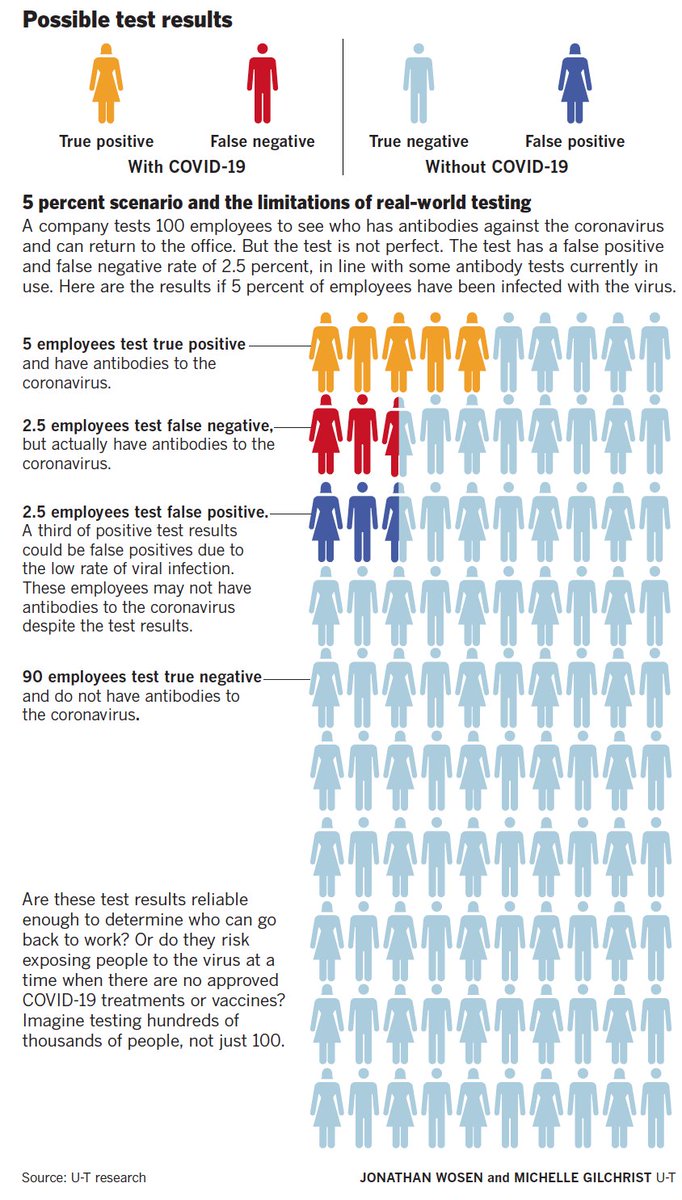 Eric Topol On Twitter See Liv Boeree S Point Below She Is Correct About Their False Negative Assertion To Be Clear The Main Problem With Serology Tests Is Their False Positive Rate Providing The
Eric Topol On Twitter See Liv Boeree S Point Below She Is Correct About Their False Negative Assertion To Be Clear The Main Problem With Serology Tests Is Their False Positive Rate Providing The
 False Negative Rt Pcr And False Positive Antibody Tests Concern And Solutions In The Diagnosis Of Covid 19 Journal Of Infection
False Negative Rt Pcr And False Positive Antibody Tests Concern And Solutions In The Diagnosis Of Covid 19 Journal Of Infection
 What We Know About Covid 19 Antibody Testing One Medical
What We Know About Covid 19 Antibody Testing One Medical
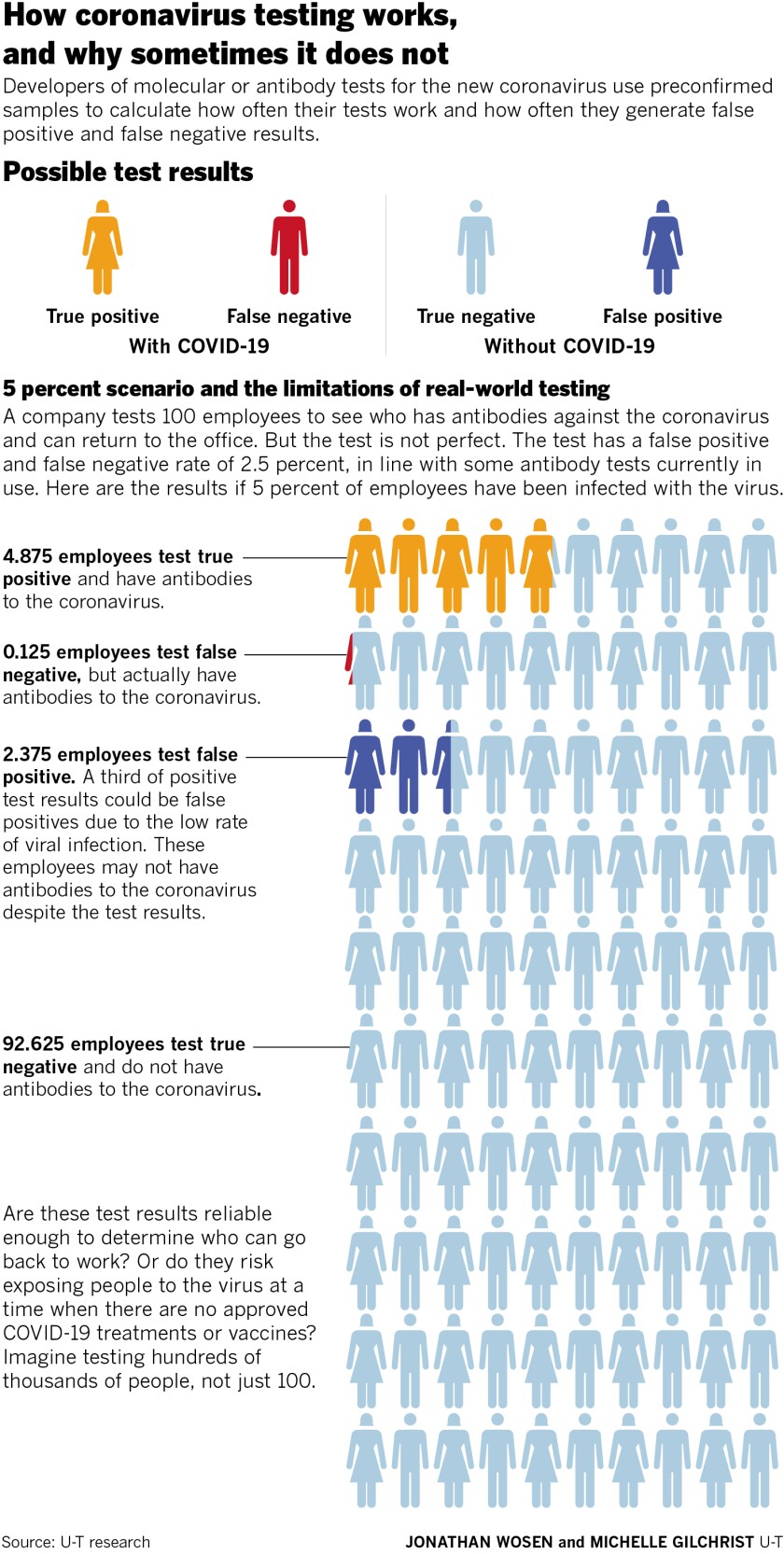 Why Coronavirus Testing Isn T So Simple The San Diego Union Tribune
Why Coronavirus Testing Isn T So Simple The San Diego Union Tribune
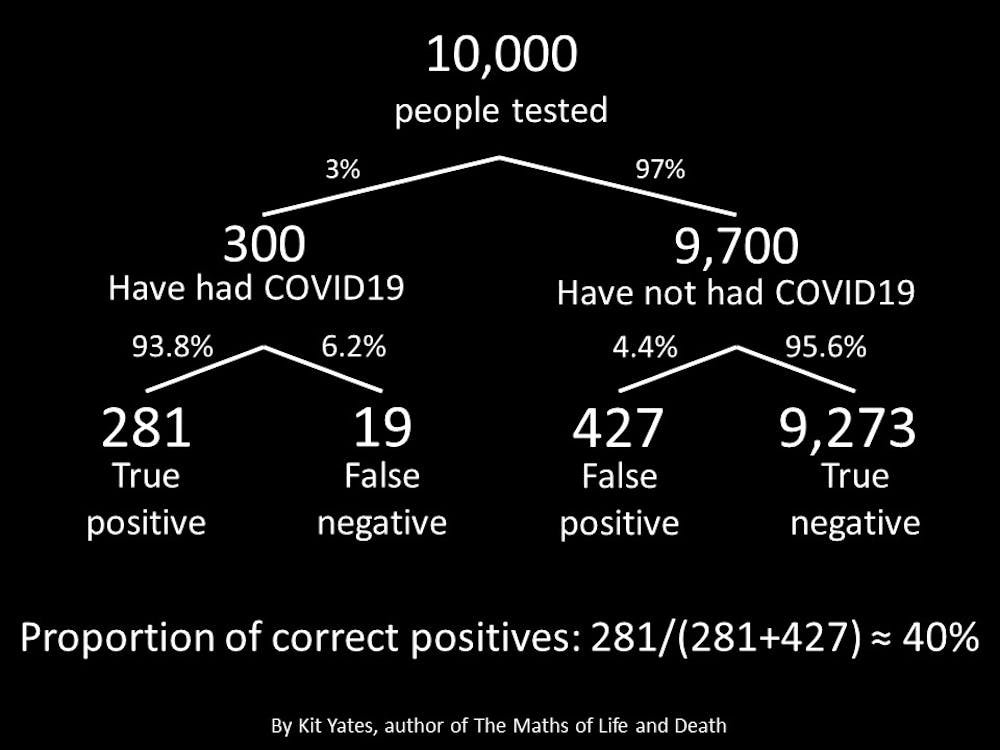
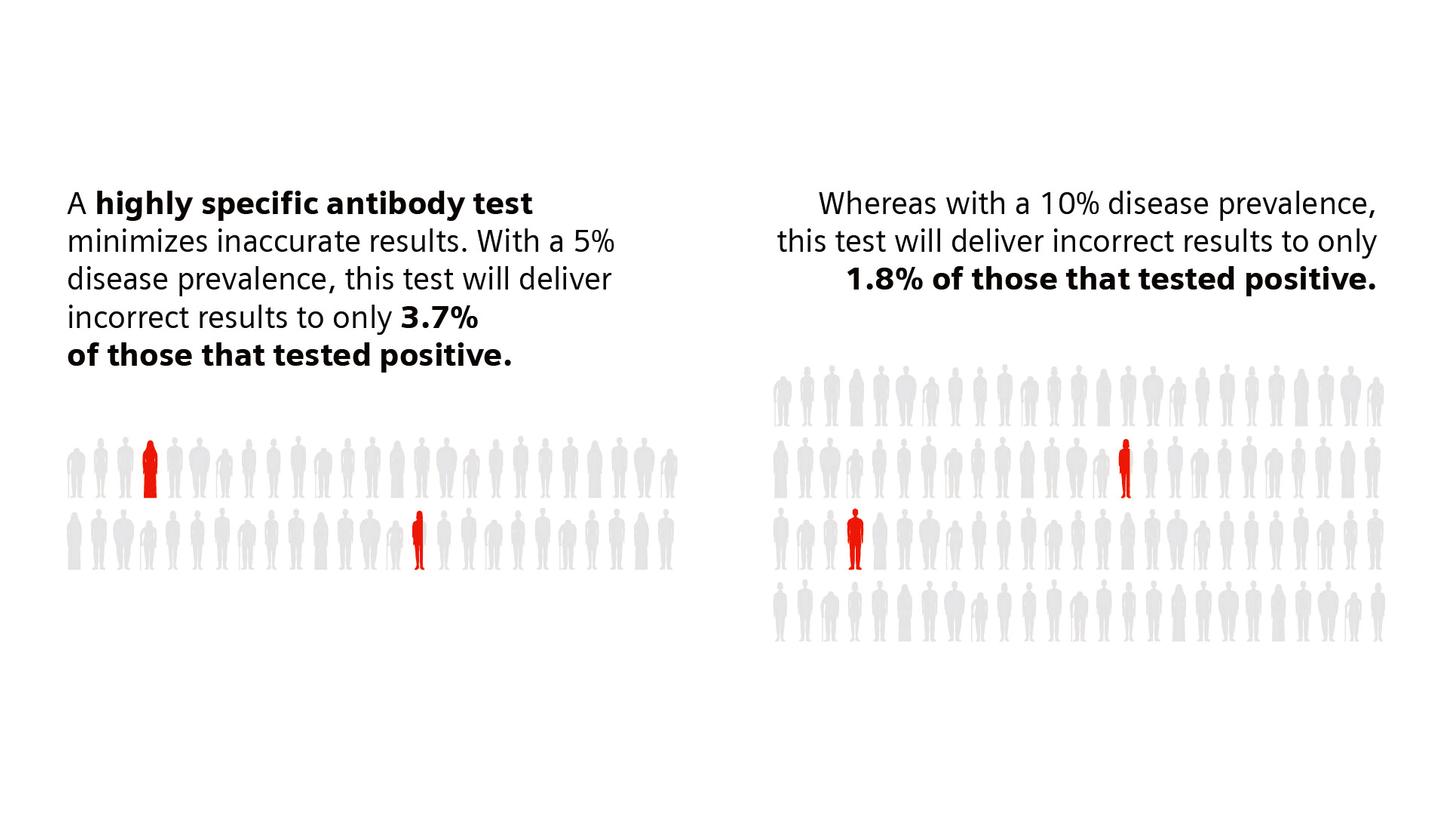 Why Specificity Matters In Covid 19 Antibody Testing
Why Specificity Matters In Covid 19 Antibody Testing

 Cdc Coronavirus Antibody Tests May Be Wrong 50 Of The Time
Cdc Coronavirus Antibody Tests May Be Wrong 50 Of The Time
 Testing For Sars Cov 2 Covid 19 A Systematic Review And Clinical Guide To Molecular And Serological In Vitro Diagnostic Assays Reproductive Biomedicine Online
Testing For Sars Cov 2 Covid 19 A Systematic Review And Clinical Guide To Molecular And Serological In Vitro Diagnostic Assays Reproductive Biomedicine Online
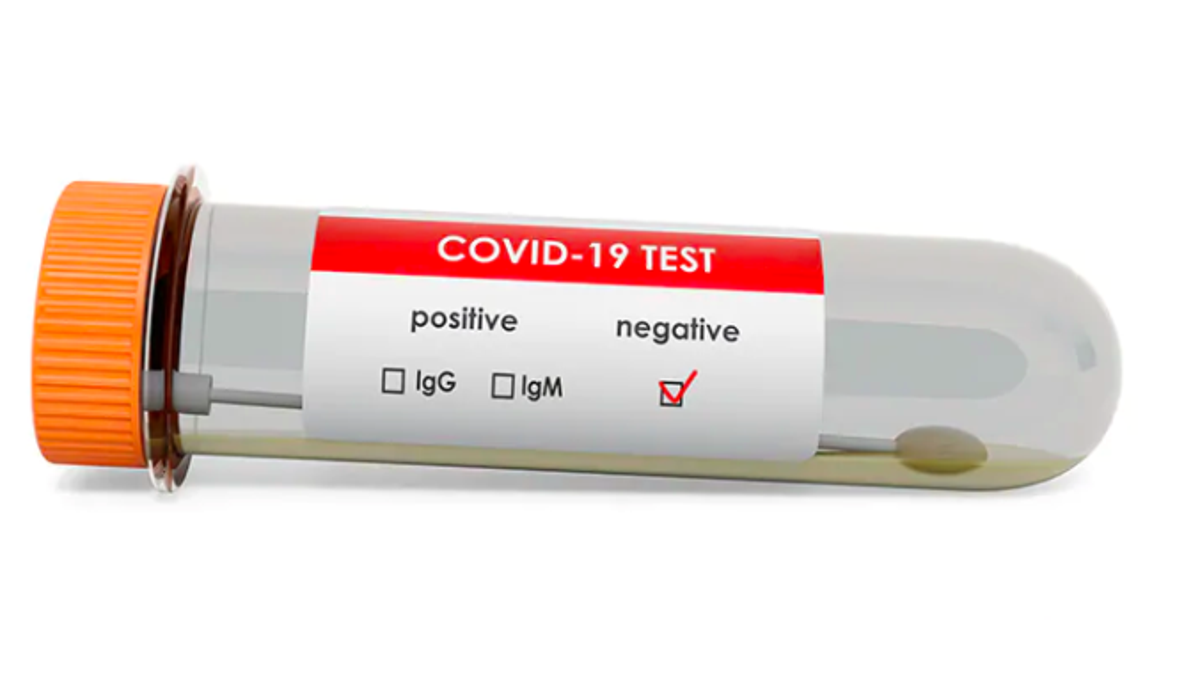 Fear Of The False Negative Covid 19 Test Covid 19 Hub Miamitimesonline Com
Fear Of The False Negative Covid 19 Test Covid 19 Hub Miamitimesonline Com
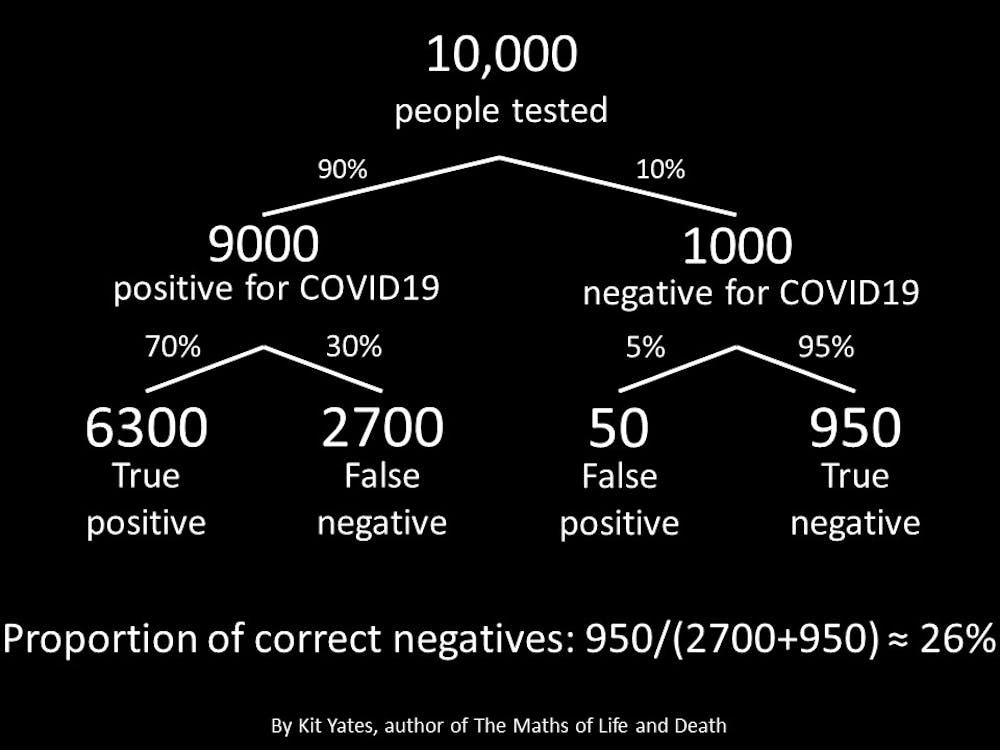
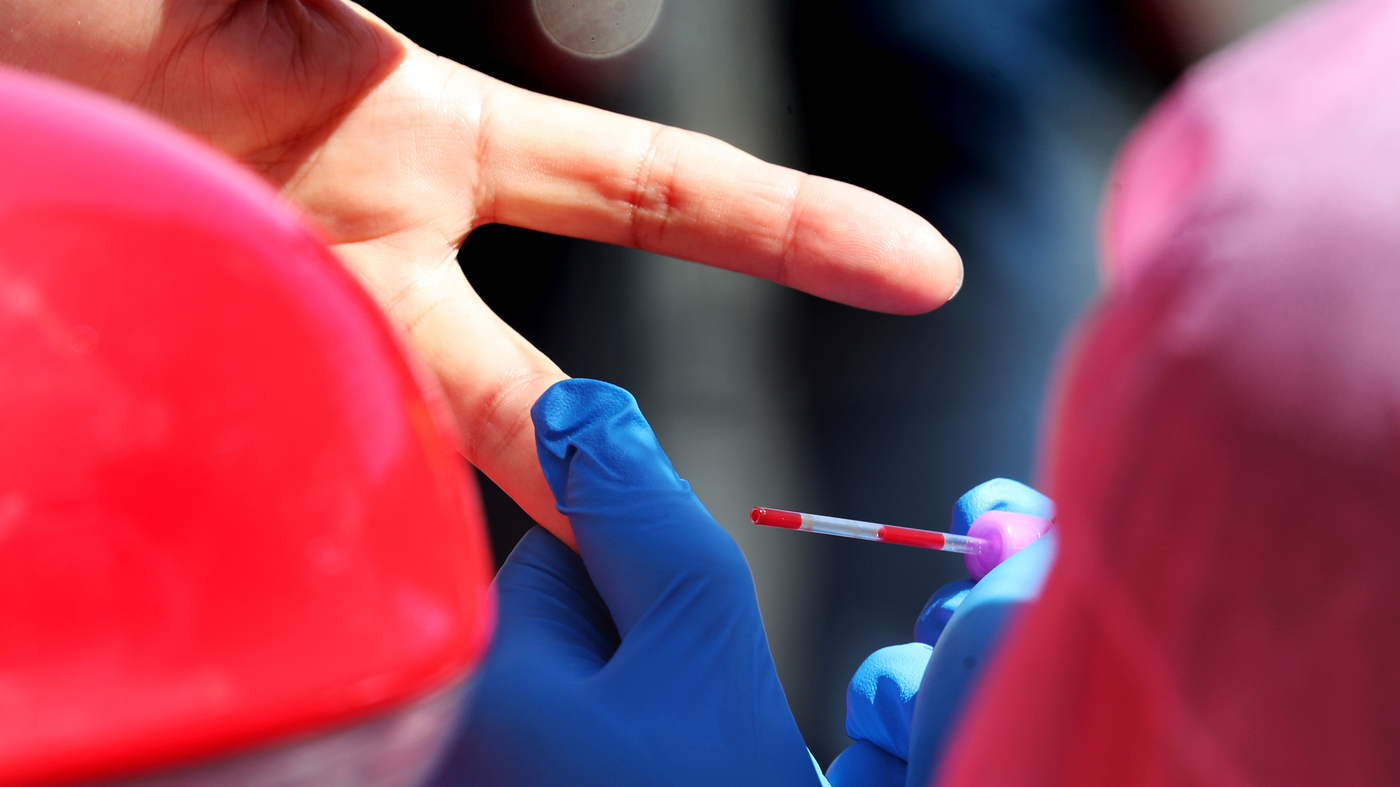 False Positives For Coronavirus Could Hamper Antibody Tests Shots Health News Npr
False Positives For Coronavirus Could Hamper Antibody Tests Shots Health News Npr
 At Home Rapid Covid 19 Tests And False Positives Coronavirus Antigen Tests Youtube
At Home Rapid Covid 19 Tests And False Positives Coronavirus Antigen Tests Youtube
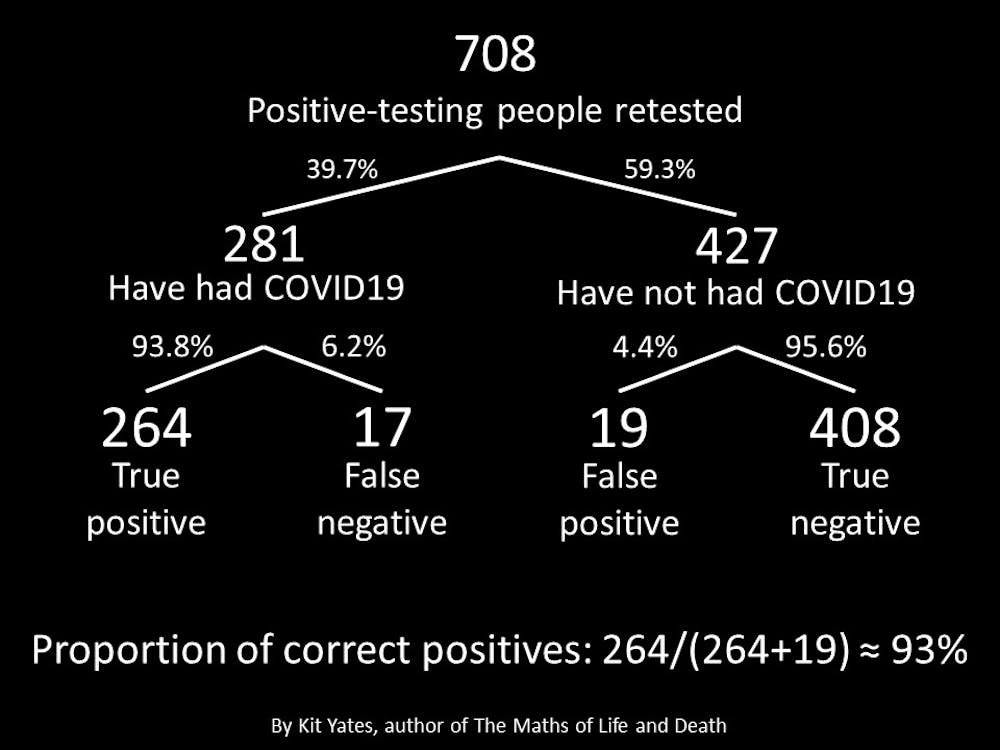
 Sermo Reports 85 Of Worldwide Physicians See False Negative Test Results With Covid 19 Patients And 9 Have Seen At Least One Case Of Re Infection
Sermo Reports 85 Of Worldwide Physicians See False Negative Test Results With Covid 19 Patients And 9 Have Seen At Least One Case Of Re Infection
Post a Comment for "Coronavirus Antibody Test False Positive Rate"